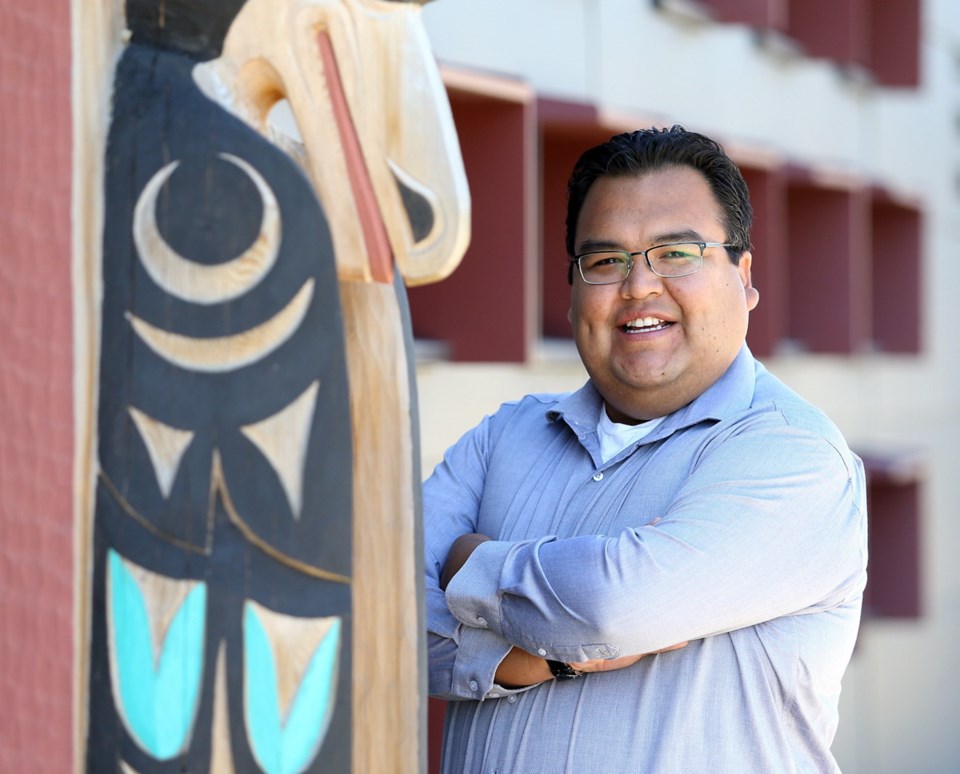The federal government broke its commitment to First Nations by approving Kinder Morgan’s Trans Mountain pipeline expansion, some Island First Nations leaders say.
While some have signed letters of support for the project, others are preparing for legal battles and warn that a lack of consent from many First Nations will compromise reconciliation efforts.
“We are committed to stopping this project with every legal means available. This is not over,” Tsartlip Chief Don Tom said.
As of Tuesday, about one-third of the 120 First Nations groups that Kinder Morgan consulted had signed benefit-sharing agreements with the company. Eleven are in Alberta and 28 are in B.C., including some on Vancouver Island.
Trans Mountain’s federal approval Tuesday means it has reached the same stage at which Enbridge’s Northern Gateway pipeline project stalled two years ago. That project was approved by the National Energy Board and the Harper government.
But a court found that Ottawa had failed to adequately consult First Nations and reversed the approval this year. The proposed pipeline from Alberta to Kitimat was rejected by the Trudeau government on Tuesday.
Some say the prospect of a similar court ruling poses the greatest barrier to the Trans Mountain project, which would expand the capacity of a pipeline system from Alberta, across southern B.C. to a tanker-loading terminal in Burnaby. The NEB’s approval for Trans Mountain depends on 157 conditions, including a duty to consult with First Nations.
Whether or not First Nations were consulted is the wrong question, said Doug White, director of the Centre for Pre-Confederation Treaties and Reconciliation at Vancouver Island University. Instead, the focus should be consent.
“Snuneymuxw has not provided consent to this project and this project puts at risk our way of life. It leaves us deeply concerned and disappointed that this kind of a decision is made in an approach premised on a denial of aboriginal people’s rights and voice,” he said.
White, also a councillor of the Snuneymuxw First Nation, said the decision is inconsistent with statements made by the Trudeau government about a new “nation-to-nation” relationship with First Nations, as well as its obligations under the United Nations Declaration on the Rights of Indigenous Peoples and the Supreme Court’s 2014 Tsilhqot’in decision, which ruled provincial and federal governments must have consent from aboriginal groups when regulating economic activity on titled lands.
Snuneymuxw also has an 1854 treaty protecting its environment and fisheries, he said.
“What it requires is respect for the treaty, not consultation with First Nations about how to infringe on the treaty,” he said.
“Consultation is not the right framework. Simply put, consultation is premised on the idea that there is only one decision-maker and that is the Crown.”
White said the decision will galvanize First Nations to organize and he anticipated a legal battle.
Tsawout Chief Harvey Underwood said the project threatens the marine territory of his nation, with implications for members’ livelihood, diet, health and identity. Tsawout participated in the National Energy Board and ministerial panel hearings and commissioned an oil-spill risk assessment.
But consultation was inadequate, he said. “To me, from the time we had the NEB hearing, we believed it was flawed. It felt like it was just a token. … That’s how I felt: Our way of life is disrupted. And for them, for the Crown, it’s just a job,” he said.
“I believe I’m echoing every voice in our community today. We are very disappointed because our way of life is disrupted.”
The Esquimalt Nation submitted a letter of support for the project to the NEB on March 9, 2015, after signing a benefit-sharing agreement.
“In order to better understand the risks that accompany this project and determine the extent to which we might minimize these risks and enhance our economy through participation in the project, we have been engaged in consultations with Trans Mountain and Kinder Morgan over the past several months. These consultations have resulted in parties entering into a Mutual Benefits Agreement which acknowledges our economic interests in the land and water of our territory and sets out a number of ways that our Nation may benefit from the project,” the letter said.
This summer, Esquimalt Chief Andy Thomas told a ministerial panel that a diesel spill in Plumper Bay off its shores raised questions about the degree of preparedness for a spill on the scale that would come with Trans Mountain’s tankers.
Thomas could not be reached for comment on Wednesday.
— With The Canadian Press



